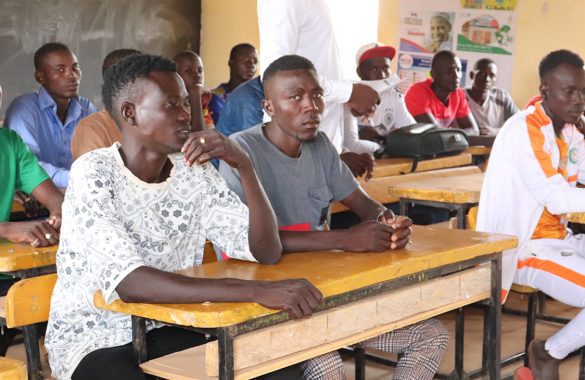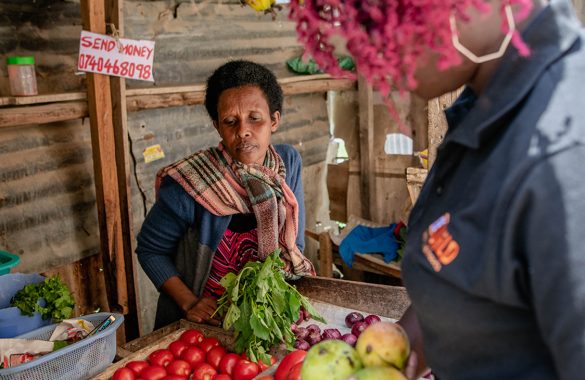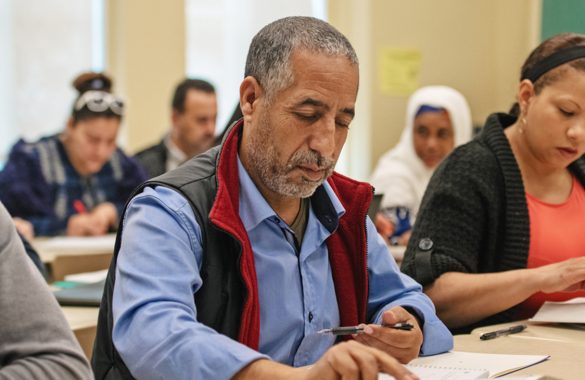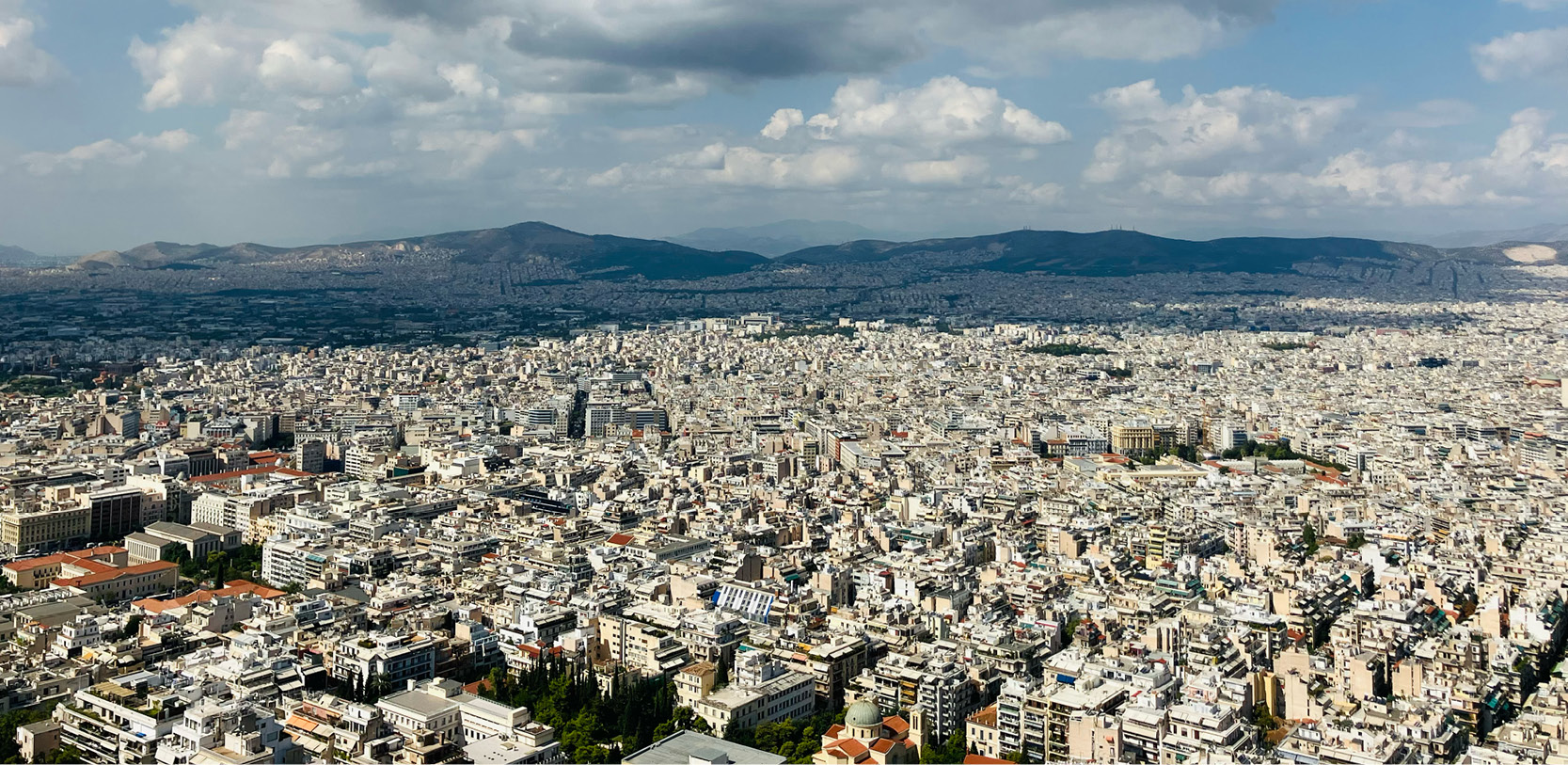
From 2015 to 2016, Greece witnessed an influx of almost 1 million forcibly displaced people. The vast majority subsequently navigated their way towards Northern and Western European countries. The situation changed when Balkan borders started closing and the EU-Turkey agreement in March 2016 limited their movement, mostly confining them to Greece. Instead of a transit site, Greece became a hosting country. Since then, arrivals continued but at a much smaller pace. What are the obstacles to integration that displaced people face in Greece? What opportunities do they have? To what extent do the experiences of men and women differ? How does legal status make a difference?
Researchers at the Immigration Policy Lab (IPL) and University College London (UCL) conducted a representative survey with 3,755 refugees and asylum seekers between April and July 2022.
The Survey
The sample is drawn from the UNHCR Profile Global Registration System (proGres) database and closely resembles the universe of asylum-seekers and refugees believed to be in Greece as of November 2021. Participants were interviewed on the phone between May and July 2022.
Individuals in this sample are not recent arrivals: the vast majority (96%) have been in Greece for more than two years. The top five countries of origin are Afghanistan, Syria, Iraq, Iran, and the Democratic Republic of Congo. Women represent 38% of the sample. 58% of the respondents are asylum seekers and 42% obtained refugee status or subsidiary protection (both referred to as ‘refugees’ here).
Results
Psychological distress was very high overall regardless of respondents’ legal status. 88% of asylum seekers and 80% of refugees suffered from moderate to severe psychological distress, as measured by the Kessler Psychological Distress Scale (K6) (see Figure 1).
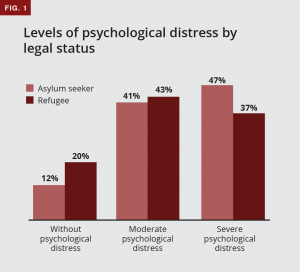
Overall, respondents had the highest scores on two dimensions of integration: psychological (attachment to Greece) and economic, as measured by IPL’s Immigrant Integration Index (the IPL-12). The dimensions with the lowest scores were the social (interactions with the host community) and linguistic dimensions (see Figure 2).
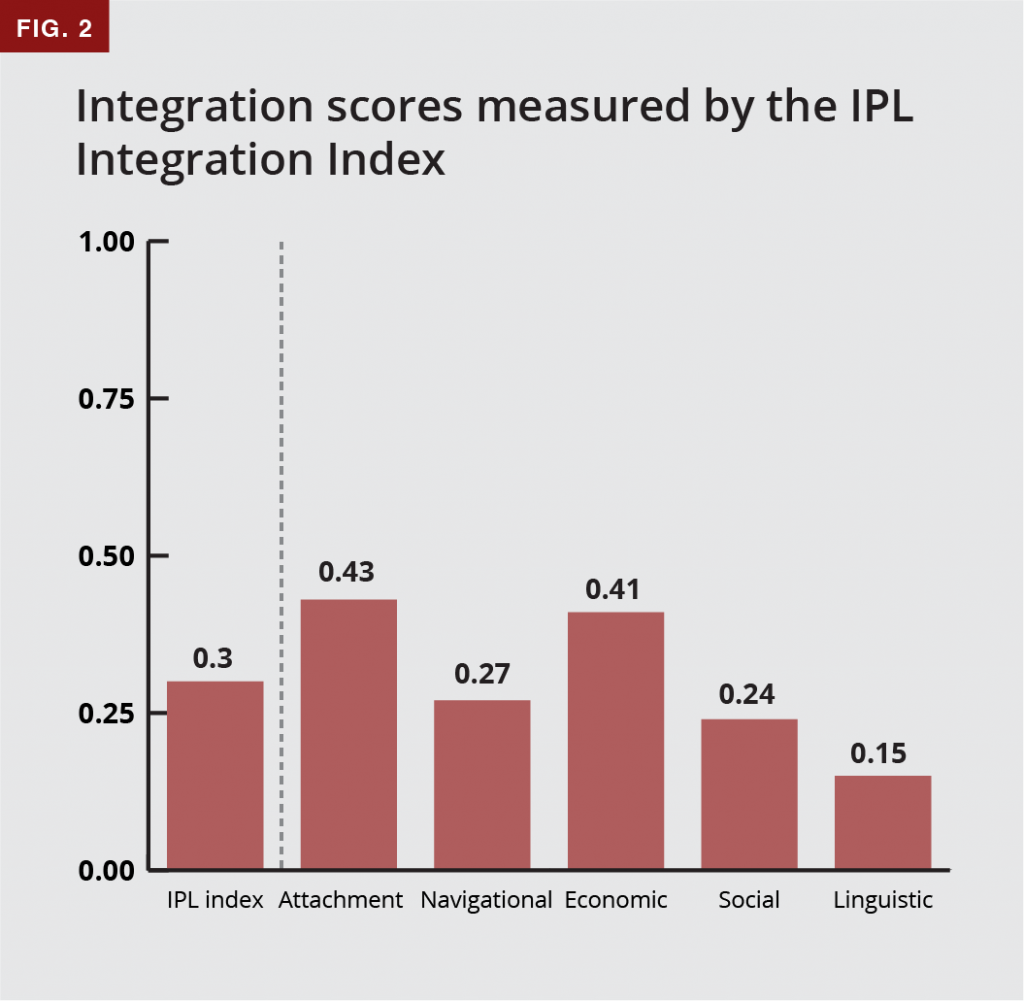
Conclusion
Overall, the research finds a varied picture of the situation of refugees and asylum seekers in Greece. On the one hand, some refugees and asylum seekers have managed to find housing, are employed, and report relatively high levels of integration across our multidimensional integration index. There is evidence that refugees and asylum seekers themselves see the opportunities that Greece can offer them—about half state that they do not intend to move away from Greece.
At the same time, the majority of respondents face substantial obstacles to integration, including very low employment rates and challenges to linguistic and social integration. This is true regardless of legal status in Greece. In addition, asylum seekers and refugees exhibit very high levels of psychological distress. Many people, especially women, are at risk of exploitation in Greece due to poor labor conditions. These findings suggest that programming that supports access to jobs, language learning, and cooperative activities with Greeks could be beneficial.
Τhis study was commissioned by UNHCR, the UN Refugee Agency. While UNHCR provided information and data, UNHCR does not warrant in any way the accuracy of the data or information reproduced from the provided UNHCR Data and may not be held liable for any loss caused by reliance on the accuracy or reliability thereof. The responsibility for the choice and presentation of facts and for the recommendations, views, opinions, comments and any other contributions contained in this document rests solely with the authors. These are not necessarily those of UNHCR and do not commit UNHCR.
LOCATION
Greece
RESEARCH QUESTION
What obstacles and opportunities do refugees face integrating in Greece?
TEAM
Marine Casalis
ETH Zurich
Dominik Hangartner
ETH Zurich
Alexandra C. Hartman
University College London
Rodrigo Sanchez Sienra
University of Lausanne
RESEARCH DESIGN
Survey
KEY STAT
85% of refugees reported moderate to severe levels of psychological distress
Funder
United Nations High Commissioner for Refugees (UNHCR)
ETH Zurich
University College London

